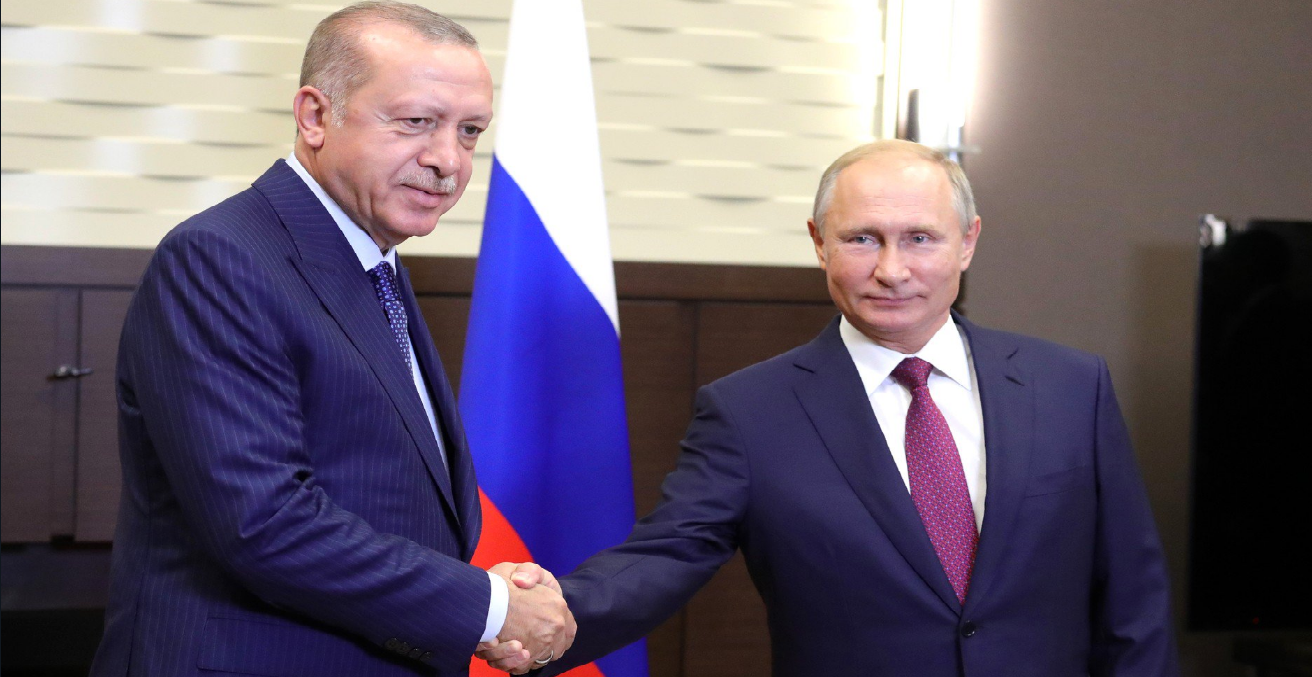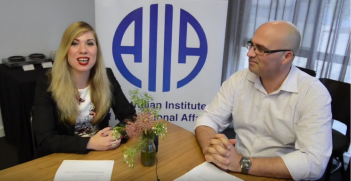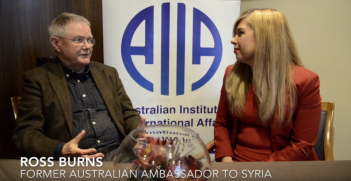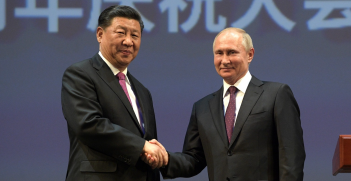Averting Disaster in Syria’s Idlib Pocket

By reaching agreement in Sochi, Turkey and Russia averted a colossal humanitarian tragedy and prevented the Assad regime from proclaiming complete control over all Syria.
On 17 September in Sochi, Turkey and Russia signed an agreement establishing a demilitarised zone in what is the last remaining stronghold of the embattled Syrian opposition. The Idlib Pocket in northern Syria corresponds roughly with the original boundaries of Idlib Province. In doing so, two of the Astana Group partners, Turkey and Russia, have averted for now a colossal humanitarian tragedy in the making. In effect, Syrian dictator Bashar al-Assad was planning a final military takeover of the remaining opposition stronghold. In this regard, the Sochi agreement prevents the Assad Government from proclaiming complete control over all of Syria.
Main points of the agreement
The Sochi agreement is composed of 10 basic points. Points 1 and 3 of the agreement describe the contours of a non-militarised ‘safe zone’ 15-20 kilometers deep to protect the more than three million Syrians who have been uprooted from their homes due to the civil war. Also in the Idlib Pocket are the remaining armed opposition groups including some extremist Islamist groups like the former Al-Qaeda affiliate Hayat Tahrir al-Sham. The latter group remains a force on the ground in the Idlib Pocket. Point 5 of the agreement indicates that they are to be removed from the zone by 15 October.
The Sochi agreement thus calls on Turkey to expel extremist elements. This will not be an easy task. It is one thing to keep the Syrian rebels in line; it is quite another to exert pressure over the al-Sham group. Nevertheless, it is essential if the Sochi agreement is to last. The best one might hope for is for Turkey to exert and maintain control over the fractious military groups in Idlib in order to prevent violations of the accord.
All heavy weapons belonging to the combatants should be removed by 10 October, according to Point 6. The Syrian rebels say they were not aware of this concession to the Russians, and disarming them will not be an easy task, especially whilst neighboring Kurdish militia (PYD) are still receiving arms from the United States. One would have thought that the US military would have stopped re-arming its PYD regional allies once ISIS had been defeated. The US practice of arming the Kurds with heavy weapons remains a major irritant in relations with Turkey.
Point 7 gives the agreement teeth and an executive power, calling for joint Russian and Turkish patrols to ensure that the Idlib Pocket remains demilitarised and ‘safe’.
The Bashar al-Assad regime can take some solace from Point 8 of the accord which reopens two major land links: highways M4 (Aleppo to Latakia) and M5 (Aleppo to Hama). In this regard, Syria will be re-united economically by this measure, if not politically.
The winners
Who are the big winners from the Sochi agreement? Let us start with the two signatories: Turkey and Russia. For Turkey, the accord gives it control over a significant chunk of northern Syria. Point 1 of the Agreement even calls for a reinforced Turkish military presence in the area. In the eyes of any neo-Ottoman Turk, the Sochi accord restores another piece of the Ottoman Empire, lost in the First World War during the Arab revolt. Turkey can now blunt any hopes the Kurds may have had to take back the northern border town of Afrin that the Turks and Syrian rebels have been occupying. Better still, Turkey avoids a potentially calamitous humanitarian conflict on its borders. With more than three million Syrian refuges already in Turkey, the country can ill afford to take any more, to say nothing of the mass confusion that would ensure on its borders. Turkey dodged a huge bullet at Sochi.
Russia continues to profit from the absence of a coherent Syria policy and strategy in Washington along with a disjointed US effort on the ground. The agreement gives Russia control over what happens in northern Syria. It also demonstrates its ability to split the NATO alliance and hive off a key regional ally even more powerful than Assad’s Syria. The Sochi agreement means Russia is here to stay in the Middle East as a key player. The days when the Soviet Union played a kingmaker role in the Middle East have returned. By helping avoid humanitarian collapse in Idlib, Russia’s role in barrel bombing and flattening Syrian cities and killing civilians fades somewhat.
Absent from the agreement
Noticeably absent from the Sochi agreement is Iran. Observers might conclude that this is in deference to American wishes, but it is most probably a signal to Israel, given that its massive military might represents a threat to the Assad regime. Indeed, in the first days of the accord, Israeli planes attacked targets inside Syria and shot down a Russian reconnaissance plane that resulted in the death of 15 Russian airmen. According to most observers, the Syrian missile defenses targeted the plane erroneously believing it was an Israeli war plane. By excluding Iran from the Sochi discussions, an attempt has been made to solicit at the very least a neutral Israeli reaction. Nevertheless, Israel has made clear that any Hezbollah moves in Syria to move weapons and fighters will be met with further air strikes.
Russia has raised the stakes this week. In response to the downing of one of its planes. Russia has decided to provide the Assad military with the S-300 anti-missile defense system. Although it is not the best the Russians have, it represents a significant upgrade over what Assad has now. Both Israel and the US have cautioned the Russians not to provide Assad with this significant upgrade. US National Security Advisor John Bolton has called it a ’significant escalation’ and tied the US military presence in north-eastern Syria with the continued regional presence of Iranian Hezbollah.
Both the Syrian rebels and the Assad Government are not signatories to the Sochi accord. This reflects their weakened position and removes the potential for violations of the agreement. Despite this, the rebels have not endorsed the accord unanimously and the potential for Assad to push northward is still present.
By removing parties from the negotiating table and simplifying the accord, Turkey and Russia increased the chances of having the Sochi agreement succeed. Both nations are big winners, but some questions remain. When and who will rebuild war-torn Syria? Can the extremists be removed from the Idlib Pocket for good?
As long as Russia can guarantee a docile Assad in Damascus, the answer to these questions is in the hands of the Turks. Wild cards abound, however, not the least of which is how Israel and Iran plan on retaining influence in Syria.
Dr Bruce Mabley is the director of the Mackenzie-Papineau Group think tank based in Montreal devoted to analysis of international politics. He is a former Canadian diplomat and is decorated by the French Republic as Chevalier des Palmes Académiques.
This article is published under a Creative Commons Licence and may be republished with attribution.





